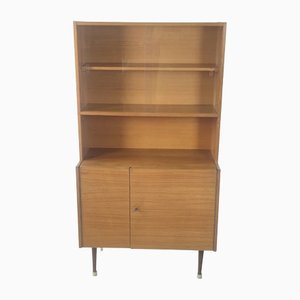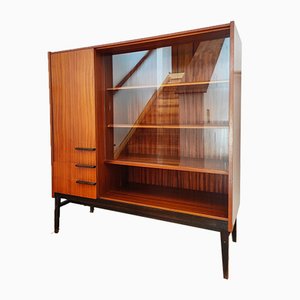
UP Závody—an acronym for Czech furniture manufacturer Spojené uměleckoprůmyslové závody (or, Associated Arts & Crafts Enterprises, in English)—was founded in Brno in 1920, following a merger of enterprises started by Jan Vaněk and Karel Slavíček. Initially comprising woodworkers who chiefly produced cabinetry, the company broadened its offering in the late 1920s to include an entire range of home furnishings, following the directive of the firm’s fresh-faced and precocious development director, Jindrich Halabala, who led the company’s product promotion and sales strategy until 1946.
Believing that furniture should be fully functional, modular, mobile, and widely affordable, Halabala—who also designed for Thonet—advocated for a new mass-market approach to Czech furnishing. To that end, he designed and produced an UP Závody catalogue that included , , , , , , and more, all influenced by the aesthetics of Czech Cubism, Art Déco, and European modernism. During the 1930s, he developed the H and E modular series, as well as various types of wooden and tubular steel pieces inspired by Bauhaus designers Mart Stam (1899-1986) and Marcel Breuer (1902-1981). These cantilevered designs, which were fabricated in UP's Hodonín branch, are highly sought-after today on the vintage market.
On the heels of Halabala’s success, by 1937, UP had grown into Europe’s largest furniture manufacturer—with a reputation synonymous with good taste and quality. The company’s clout continued to widen internationally, even with the onset of the Second World War. After the war, however, UP was nationalized, which forced the company to focus more on quantity than quality. Although UP remained active throughout the latter half of the 20th century, this dilution of its foundational commitment to serial designs of the highest grade ensured the company’s fade from design relevance—a wither exemplified by the lack of late-century UP work on the vintage market.
In 1992, UP merged with fellow Czech furniture manufacturer Tusculum Rousínov to become Tusculum a.s., which, in the early oughts, became absorbed by Jitona, currently one of the five largest suppliers of veneered furniture for Ikea Europe.



